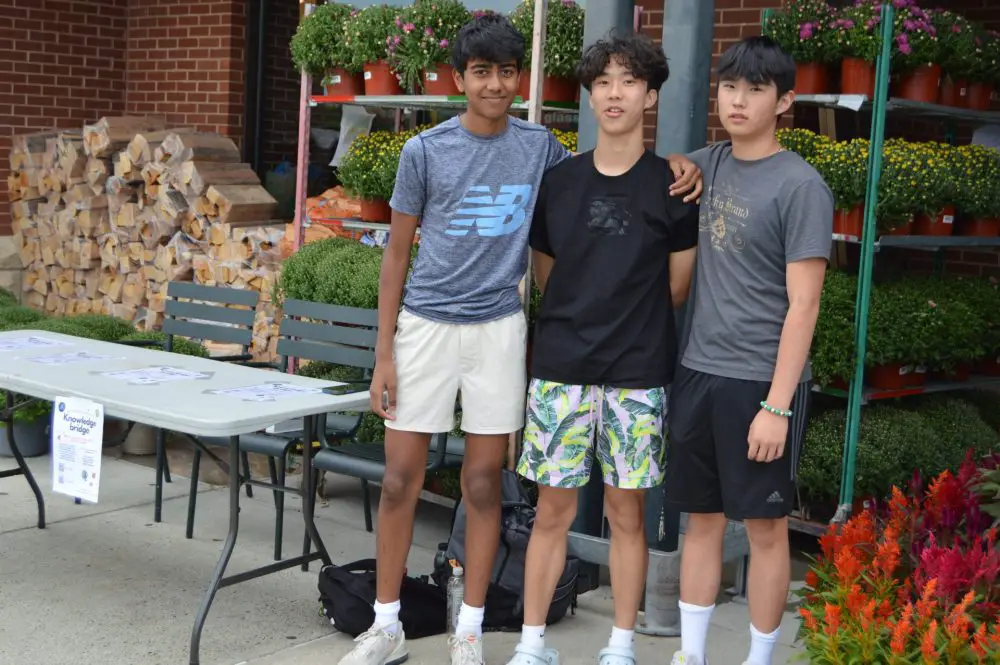Wellesley High students giving back to community with Knowledge Bridge tutoring program
What to do with all that knowledge gained from attending Wellesley Public Schools and taking part in other activities? For three Wellesley High School students, the answer is to launch a free tutoring program to start the school year.
Dhruv Kasat (junior) and Aznye Mo (junior) and Alex Su (senior) have started their Knowledge Bridge project with an eye toward training tutors and helping students in need of help with their studies. The founders will juggle their new venture with their own studies, plus activities such as running, volleyball, jazz band, and business club.
“We started Knowledge Bridge because we wanted to give back to our community in a meaningful way. Since all three of us worked with other non-profits around the world that help students in need, we realized that we should start one in Wellesley,” Kasat says. “We all felt that younger kids could benefit from extra support, and we wanted to be the ones to provide it. It’s for a good cause and it feels good to know that we are helping our town’s future.”

The three spent part of Labor Day in front of Roche Bros., sharing their story with passersby and signing up interested tutors and students. So far they have a handful of tutors and students, and hope the numbers will grow by word of mouth (and maybe this article….). So far, most tutors and students have expressed an interest in teaching or learning languages and math, though offerings will include literacy, homework help, and others that students request.
Tutoring will be done in whatever environment is best for students, either in person or online.
While Wellesley High offers peer tutoring, Kasat says his group noticed some gaps in access and wanted to “create something more flexible and available to all students in Wellesley.”
Before marketing their project in Linden Square, the three Knowledge Bridge founders in August hit up people door to door.
“Even though we didn’t attract a lot of students initially, we learned valuable and diverse stories about the community. We heard different stories from both adults and kids and it kinda showed us how different people are and not everybody learns in the same ways. These conversations really amped up our efforts to make the non-profit thrive and led us to do many other marketing plans,” Kasat says.
Please send tips, photos, ideas to theswellesleyreport@gmail.com
- Please support Swellesley by advertising or contributing